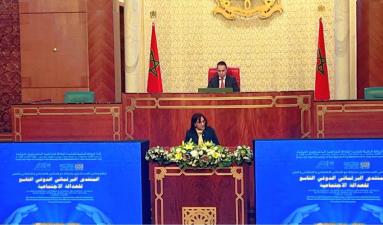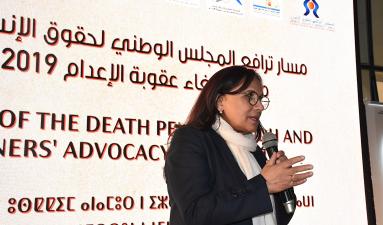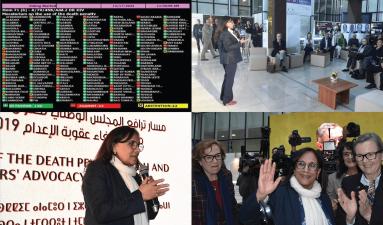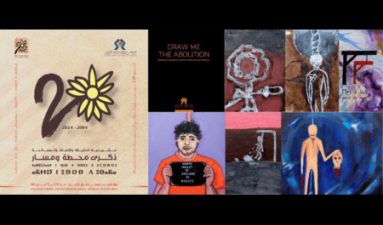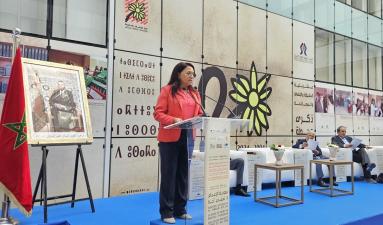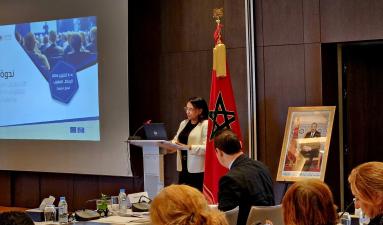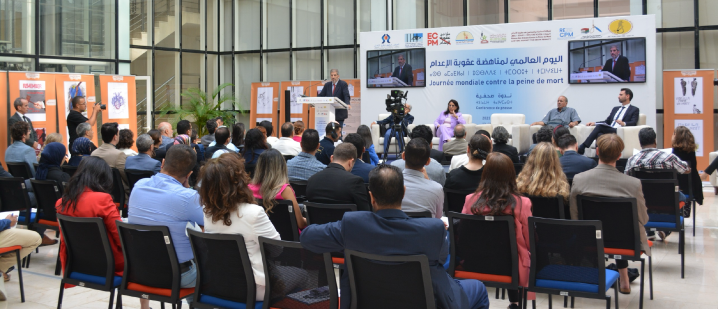
On the occasion of World Day Against the Death Penalty, which is commemorated each year on October 10, the National Human Rights Council (CNDH), the Moroccan Coalition Against the Death Penalty, the Moroccan Observatory of Prisons, and the Together Against the Death Penalty Association (ECPM), in addition to parliamentarians, lawyers, journalists, professors, and entrepreneurs networks, organized a Press conference against the death penalty on Thursday 12 October 2023 at the CNDH headquarters in Rabat, Morocco.
In her statement at the opening session of this annual custom, Mrs. Amina Bouayach reiterated the Council’s firm position against the death penalty. She emphasized that this position is based on realistic data, rational analysis and a comparative approach, all of which confirm that the death penalty is founded on the concept of revenge rather than rehabilitation and integration. She also highlighted that the CNDH’s engagement in the campaign calling for the abolition of this punishment legally and practically, does not in any way contradict the rights of the victims, as some attempt to argue to justify maintaining this punishment.
Mrs. Bouayach expressed her regret that Morocco remains, in the current global context, on the margins of the global momentum and employs considerations neither objective nor convincing to retain this punishment, noting that 33 out of 57 countries (more than half), belonging to the Organization of Islamic Cooperation (OIC), have abolished or committed to the practical moratorium on the use of this capital punishment.
She also added that more than two-thirds of the world's countries (144 countries) have abolished the death penalty in law or practice. The number of countries that have ratified the Second Optional Protocol to the International Covenant on Civil and Political Rights, which aims to abolish the death penalty, has reached 90 countries.
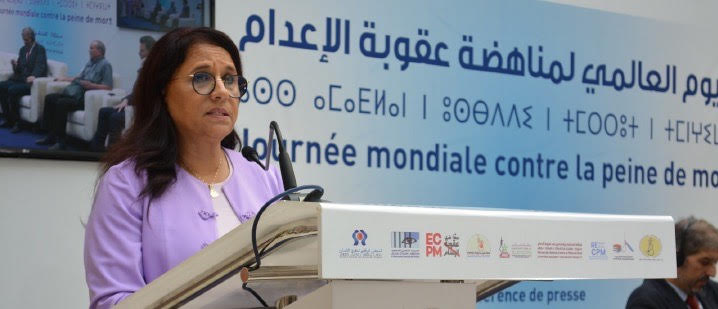
On behalf of the “Moroccan Coalition Against the Death Penalty,” Mr. Abderrahim Jamai, Lawyer, shed light on the 21-year-long of anti-death penalty advocates, calling on the government to respond to the legal and fundamental human rights demand, which is the abolition of the capital punishment.
For his part, the representative of the Moroccan Observatory of Prisons explained that the death penalty and torture are two sides of the same coin. He highlighted that international human rights law considers torture a grave violation of human rights and that all international declarations and agreements criminalize it. He also called on the Moroccan government to vote in favor of the UN resolution for the moratorium on the use of the death penalty and enact a criminal law free from this penalty.
The ECPM representative welcomed the involvement of the CNDH and all other activists against the death penalty in advocating for the abolition of this punishment. He also stressed that the NGO he represented will continue supporting the bodies calling for its abolition. EPCM representative also called on the Moroccan government to accelerate the process of approving the abolition, following the example of several countries.
European Union mission in Morocco representative affirmed the EU’s determination to continue supporting all voices calling for the abolition of the death penalty worldwide. He encouraged Morocco to vote for the Second Optional Protocol to the International Covenant on Civil and Political Rights, which aims at abolishing the death penalty, and to vote in favor of the UN General Assembly resolution on the moratorium on the use of the death penalty.
Representatives of networks against the death penalty of parliamentarians, lawyers, professors, journalists, and entrepreneurs unanimously agreed on the importance of raising awareness of the importance of the right to life, as enshrined in the Moroccan Constitution. They reiterated their commitment to opposing this punishment and furthering their advocacy to achieve their desired goal.


